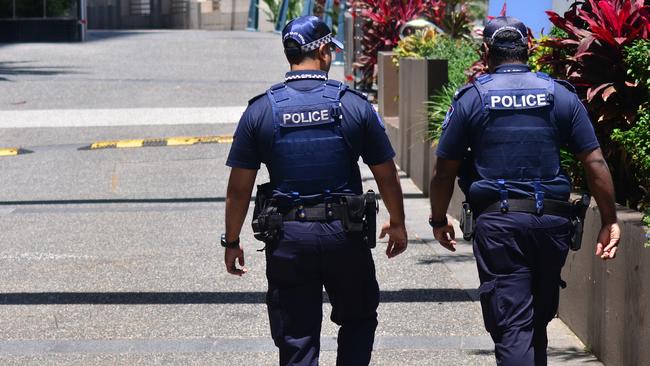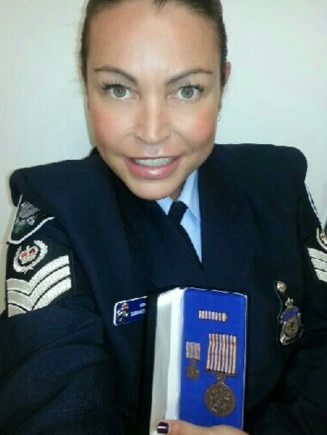Lack of support for those who serve us is alarming
The loss of another Australian Federal Police officer by apparent suicide is staggeringly upsetting. We must do more to care for the mental health of men and women in blue, writes Brian Burston.
Rendezview
Don't miss out on the headlines from Rendezview. Followed categories will be added to My News.
It is well known that Christmas, as well as being a time of celebration, is also a time when depression and anxiety can spike.
The “Blue Christmas” phenomena also affects our boys and girls in blue.
I have championed the cause of armed service welfare all of my life, and I’m glad to have seen a marked improvement in awareness and help for those who serve in our nation’s military, though there’s always room for improvement. But the police are often overlooked, a poor relation by comparison, when it comes to a place of care and esteem in the Australian psyche. Perhaps it’s because they are largely state-based; perhaps it’s because, unlike the military, police have direct contact with us including taking action against us from time to time.
But the welfare of our police officers should be just as concerning to us as that of the military.
RELATED: AFP admits mental health toll on frontline officers ‘confronting’

Police deal more frequently with distressing incidents and distressed people. Alongside traumatic response work there are the stresses and strains of the bureaucracy relating to the keeping of records and preparing case files; few careers carry the risk of a prison sentence for making clerical mistakes. And like all institutions there is the internal politics to navigate. It has been said that it is the inside of the police station that provides the greatest fear.
While it is accepted that police work is dangerous, too many officers and staff are dying by their own hand because access to help is poorly provided. I read with great sadness the news that AFP Sergeant Samantha Baglin had died on Sunday.
Sgt Baglin was the fourth AFP officer to take their own life in a police station in the last 12 months. This is a staggeringly upsetting situation, and it couldn’t be clearer that the issues that brought their despair to a head were centred upon the workplace.
Yet, according to reports, there are only two qualified psychologists serving the 6000 officers and staff of the AFP. With cries of insufficient mental health support for those on Manus and Nauru, I wonder how these provisions stack up by comparison.

In 2017 there were just two social workers, 5.6 full-time equivalent psychologists and 4.4 full-time equivalent nurses — all based in Canberra. For the large number of AFP officers and staff that work outside of Canberra (including overseas), access to help is by way of telephone; it is clear that this is insufficient and arguably neglect. It is not good enough.
Being cognisant of this problem I asked questions of the AFP at Senate Estimates in October relating to PTSD, a well-known contributory factor in police suicides. Compiling data relating to mental health is notoriously difficult. As well as the stigma and perceived career threat that reporting symptoms of PTSD within the organisation presents, there is also the sense of mistrust that would lead members to seek help outside of the AFP.
RELATED: Call for government to set up mental health phoneline for emergency workers
The AFP acknowledged this reality but did provide statistics relating to claims lodged with Commcare in connection with PTSD. These statistics showed that there were 180 members who had lodged claims with PTSD as the named cause. Claims have been increasing since 2008, and in 2017 there were triple the number of claims that there were in 2008.
Accepting that even this staggering increase is an under-represented number, the AFP need a root and branch change when it comes to dealing with the wellbeing of their members.
Nobody can enter into the full reasons that people kill themselves, but surely the lack of provision of mental care within the AFP is a cause for alarm.
I am calling for a long overdue increase in the employment of psychologists, social-workers, and chaplains within the AFP. Access to professional support should be available across the country. To those who serve our nation both at home and abroad in the AFP, I want you to know — especially at this Christmas time, that somebody cares.
Brian Burston is a United Australia Party Senator for NSW.
If you are experiencing depression or are suicidal, or know someone who is, help is available.
Lifeline: 13 11 14
Beyond Blue: 1300 22 46 36


